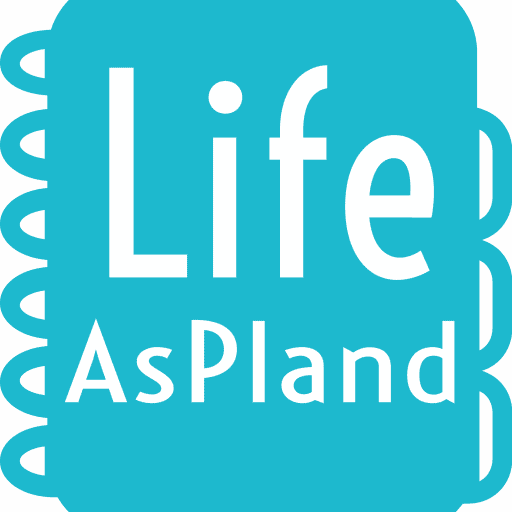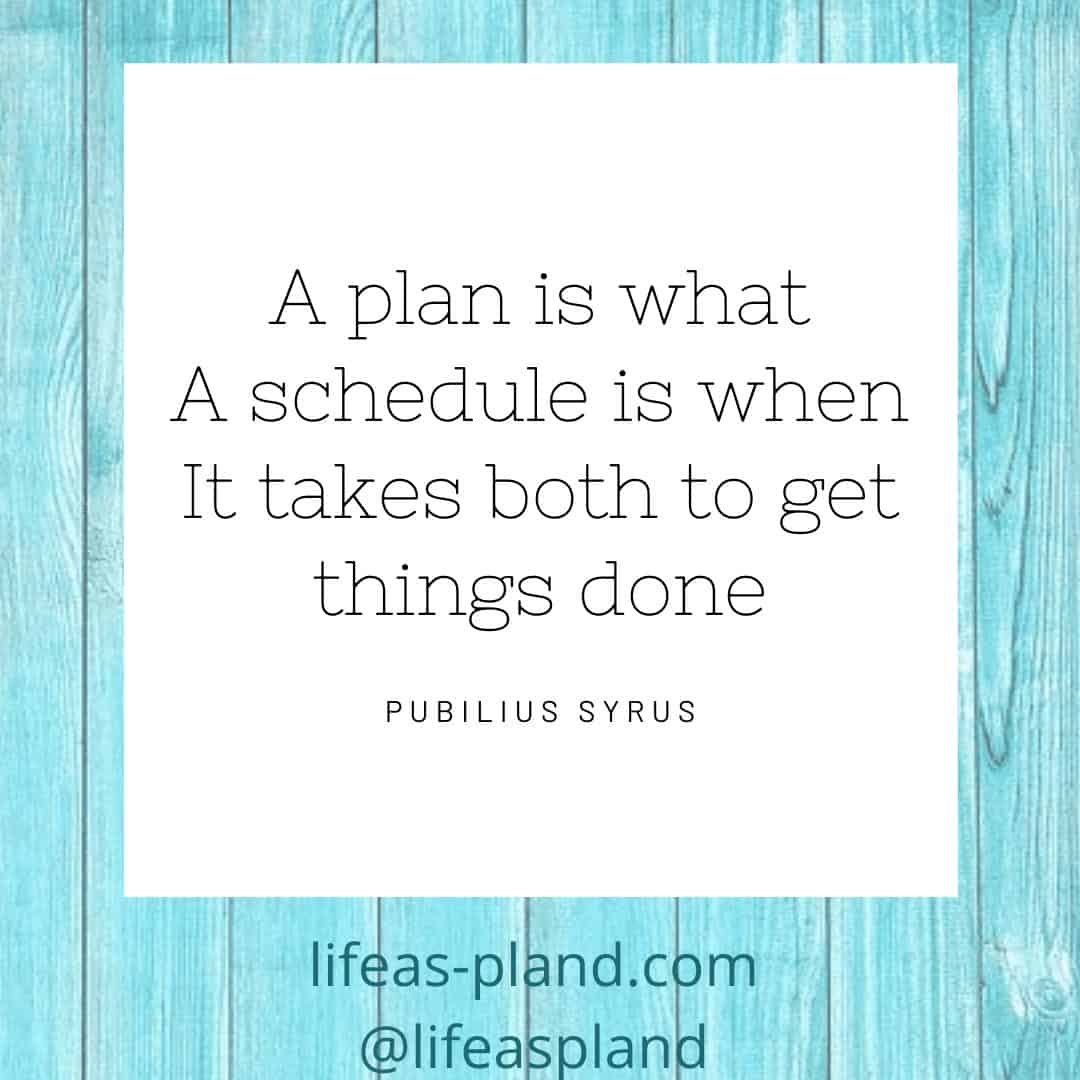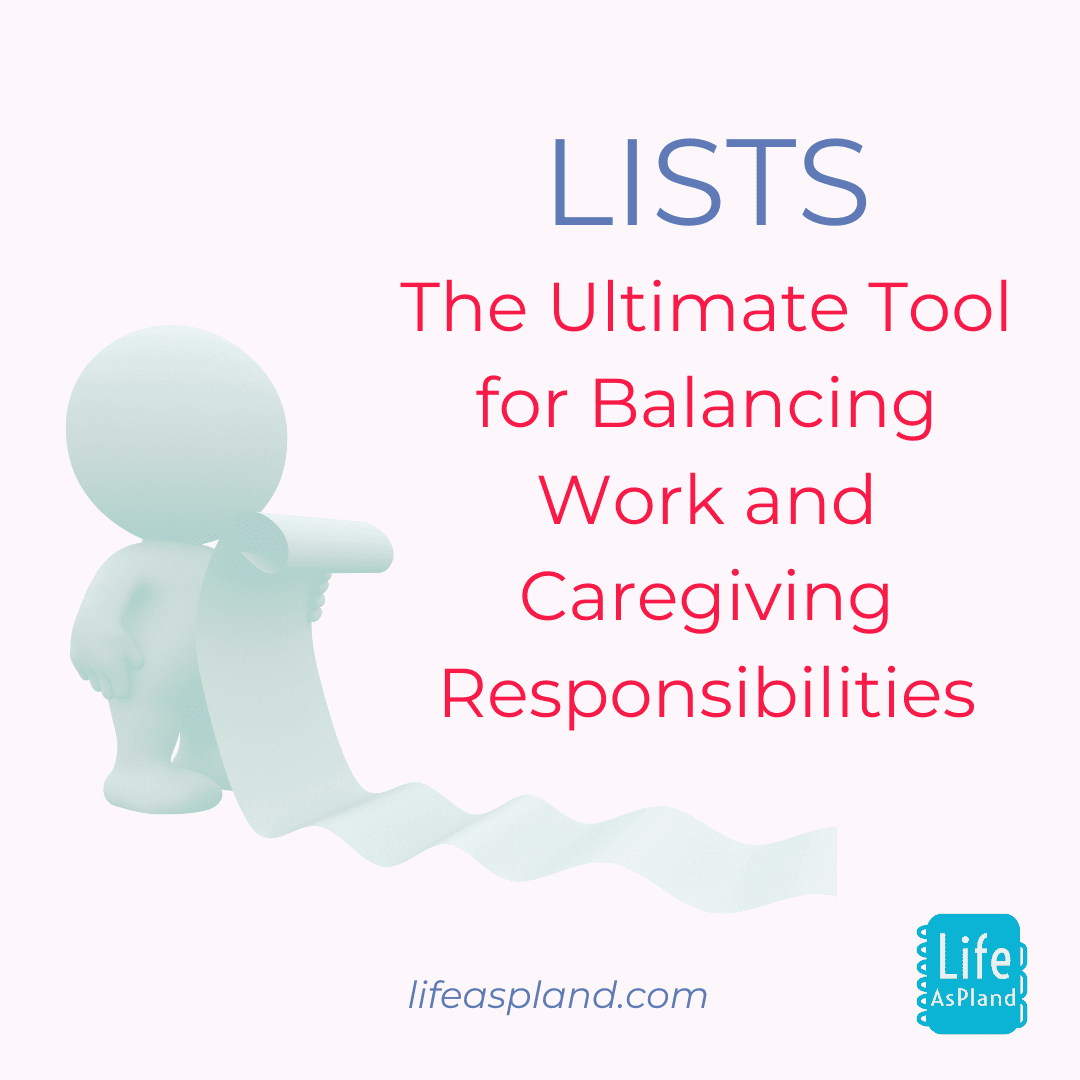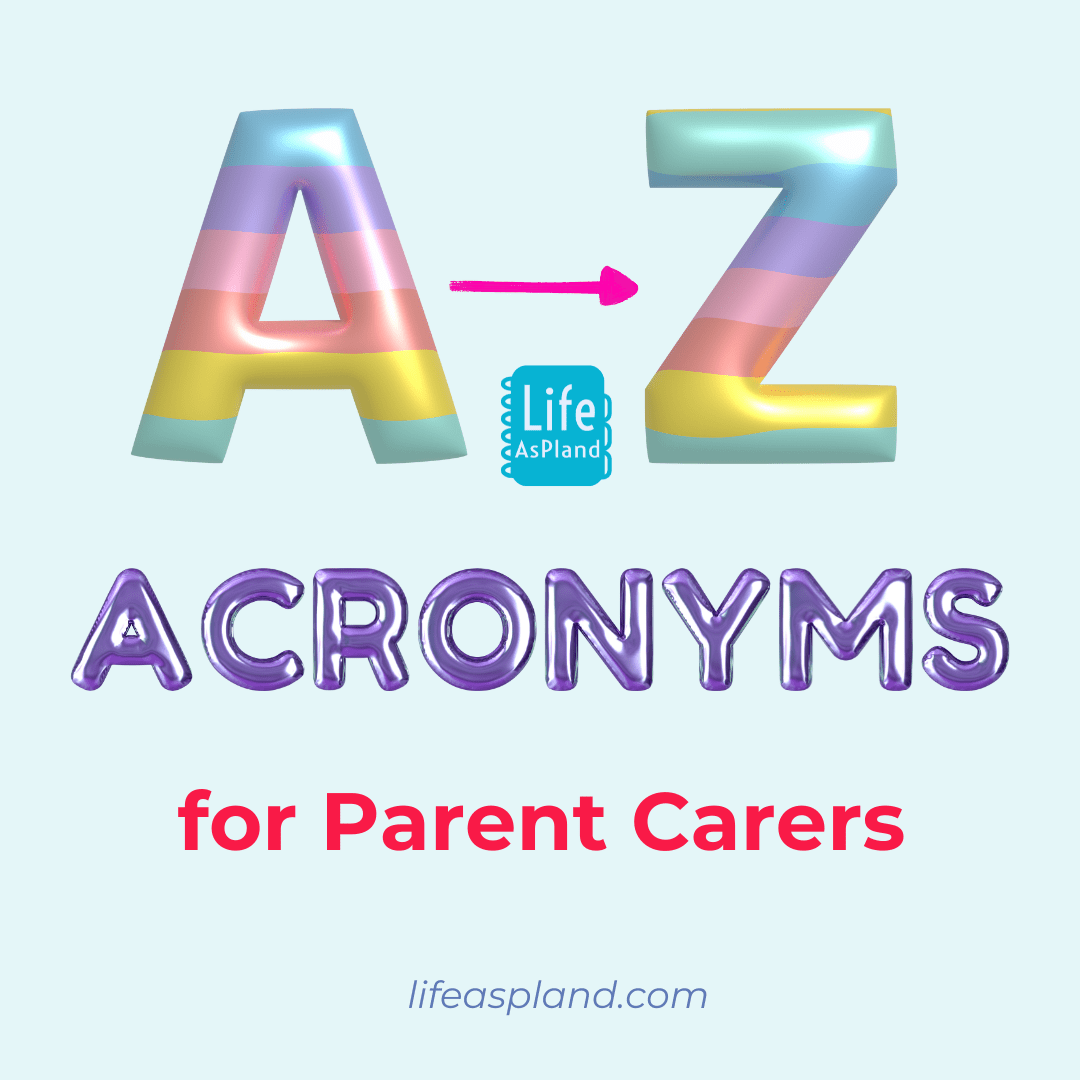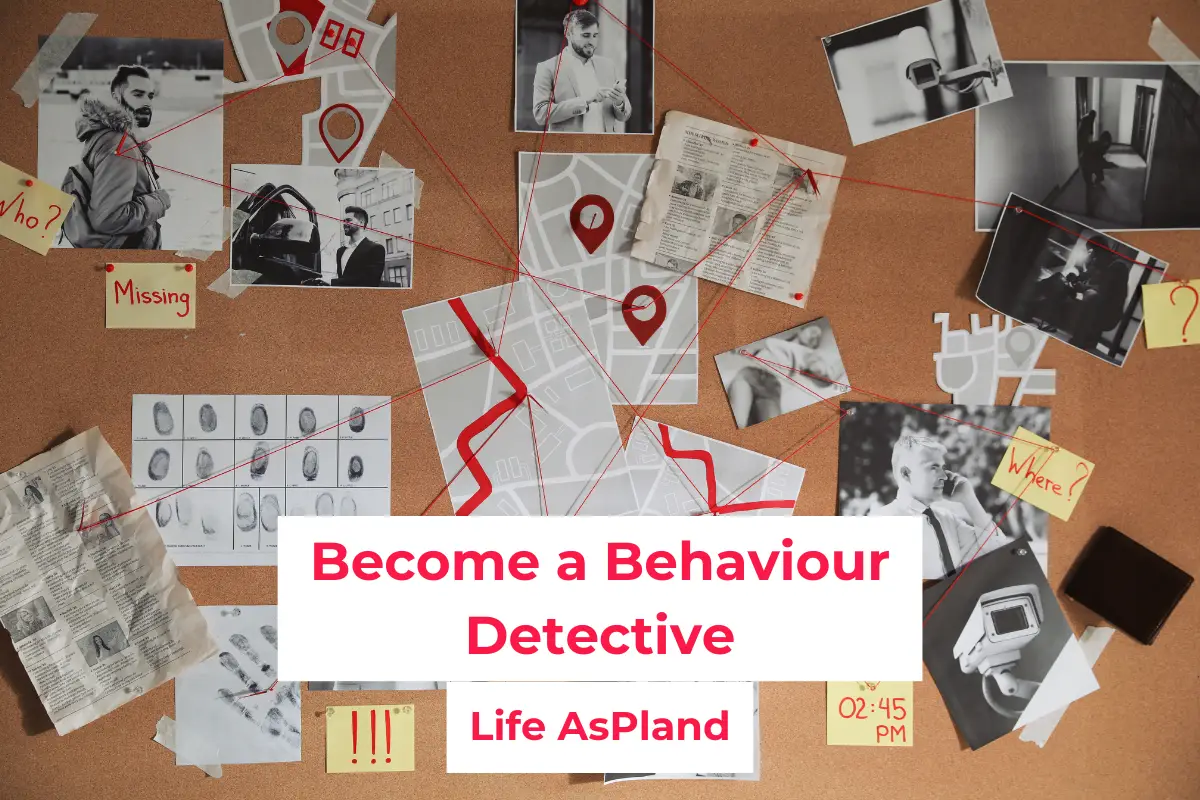
“a plan Is what, a schedule is when. It takes both to get things done”
Pubilius Syrus
Lists
Are you a list writer? Do you have lists everywhere? Or maybe even lists organised in one lovely book – yes I’m talking about you – or maybe you have amazing mind maps that you’ve spent hours working on?
How many of those items get done?
Plans
Plan (noun) – A set of decisions about how to do something in the future
Plan (verb) – To think about and decide what you are going to do or how you are going to do something
Cambridge English Dictionary
Have you considered creating a plan from your to do lists?
To do lists are great but how many of the items on there are part of the bigger plan or are they there to get them out of your head?
To do lists definitely help to clear the clutter but working through them at random, without prioritising can lead to a busy day when you achieve nothing. You’re just busy being busy.
Going through the list and making a proper plan will help you, I promise. Looking at each task and prioritising it, even just highlighting the one you have to do (tax return, hospital appointment) can help you start to make a plan.
Plan to work on those items which are the most important (the have to do items) and then look at that list and decide which are the most urgent.
This is a great start to a great plan
Schedules
Schedule (verb) – To arrange that an event or activity will happen at a particular time
Cambridge English Dictionary
Now you have the beginning of your plan, you need to move it forward and start to schedule when you will do the tasks on your plan.
This is where many of us fail at plans and then tell ourselves that we are just no good at this planning lark. It’s not that we are no good at planning, we just haven’t reached the final step yet.
Look at your must do list and consider when you will do them.
If you are a notebook type of person, you could plan the week ahead every Sunday, or perhaps you need more flexibility due to children or other commitments. If this is the case, then write a daily list of things to achieve; you can either do this the evening before (so you start the day with the list to hand and know what you are going to be focussing on as soon as you start) or write the list each morning as you sit down with a coffee, a gradual way to start the work day.
Find what works for you.
Some people like to schedule the time on their online calendar. I have seen some beautiful colour coded calendars but I know that for me, that would feel like an extra task. If this works for you though, then go for it.
We are all different and what works well for one person may not be an effective way for you.
So your challenge this week is to make plans from your list and then schedule your plan. It takes both the plan and the schedule for it to be effective.
